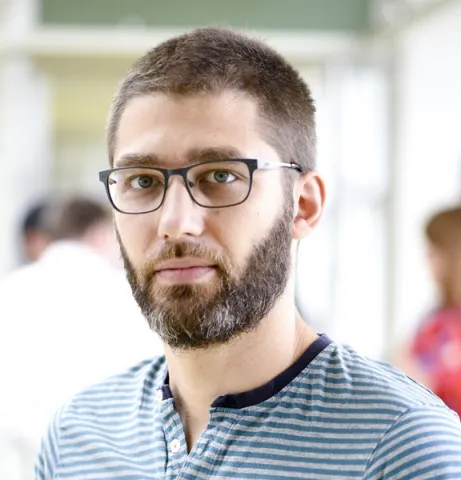About the project
This project focuses on designing and fabricating novel photonic computing devices using chalcogenide glass materials such as sulfur (S), selenium (Se) and tellurium (Te). These materials enable the creation of micro and nanoscale structures known as meta-optics, that precisely control light over a broad spectral range.
This project combines experimental fabrication with numerical modelling of photonic devices, including the development of Diffractive Optical Networks that integrate deep learning concepts for all-optical computing and AI tasks.
You will be designing and fabricating novel photonic computing device configurations by working with amorphous semiconductor materials known as chalcogenides using the unique Novel and compound glass facilities within our state-of-the-art Zepler cleanrooms. These glass materials are based on the group VI elements S, Se and Te and exhibit a very wide transparency range, spanning from the visible to the far infrared. They therefore present an ideal technology platform for designing and fabricating Meta-Optics, which are a fundamentally new way of transforming light with unprecedented capabilities. These consist of micro and nanoscale structures with varying shapes and sizes designed to control the interaction of light by manipulating phase and dispersion.
Therefore, in parallel with experimental activities, you will focus on the numerical modelling of these advanced photonic device concepts. This will also include the development of Diffractive Optical Networks that bring deep learning principles into the design and operation of free-space optical systems to create new functionalities and enable all-optical implementation of various mathematical functions as well as machine learning (ML) and artificial intelligence (AI) and tasks.
You will develop highly transferable skills in cleanroom sample fabrication and electronic and photonic device characterisation, materials processing, numerical simulations and machine learning with input from industry partners and working with leading academic experts.
The School of Optoelectronics (ORC) is committed to promoting equality, diversity inclusivity as demonstrated by our Athena SWAN award. We welcome all applicants regardless of their gender, ethnicity, disability, sexual orientation or age, and will give full consideration to applicants seeking flexible working patterns and those who have taken a career break. The University has a generous maternity policy, onsite childcare facilities, and offers a range of benefits to help ensure employees’ well-being and work-life balance. The University of Southampton is committed to sustainability and has been awarded the Platinum EcoAward.
